A look back: Twenty-five years ago, they were at the Fourth World Conference on Women
Date:
Twenty-five years ago, more than 30,000 activists and governments from 189 countries debated and adopted a blueprint of actions to build a gender-equal world.
At the Fourth World Conference on Women, from 4 – 15 September, 1995, they created the Beijing Declaration and Platform for Action – the most comprehensive agenda to date, on gender equality and women’s empowerment.
It tackled global issues that are still urgent: poverty, environment, violence against women, girls’ education, equal participation of women in the labour market, especially in highly skilled jobs, STEM industries, and in senior management. It committed to promote the balance of paid work and domestic responsibilities for women and men, and much more.
Fast forward to 2020: As our world combats the COVID-19 pandemic, as our forests burn and seas surge, and millions are displaced by conflicts, the world’s women and girls are bearing the brunt of the worst impacts. By 2021, 47 million more women and girls will be pushed into extreme poverty, bringing the total number of women living on USD 1.90 or less at 435 million.
The gains made for women’s rights seem at once fragile. Gender equality, while possible, is still out of reach.
We are looking back and going forward this month, celebrating the power of women’s movement, and calling for nothing less than bold, decisive actions to secure women’s rights as human rights, once and for all.
These are some voices of activists who were at the Fourth World Conference on Women in Beijing, in 1995, and those who were shaped by it for a lifetime.
Rigoberta Menchú Tum, Nobel Peace Price 1992
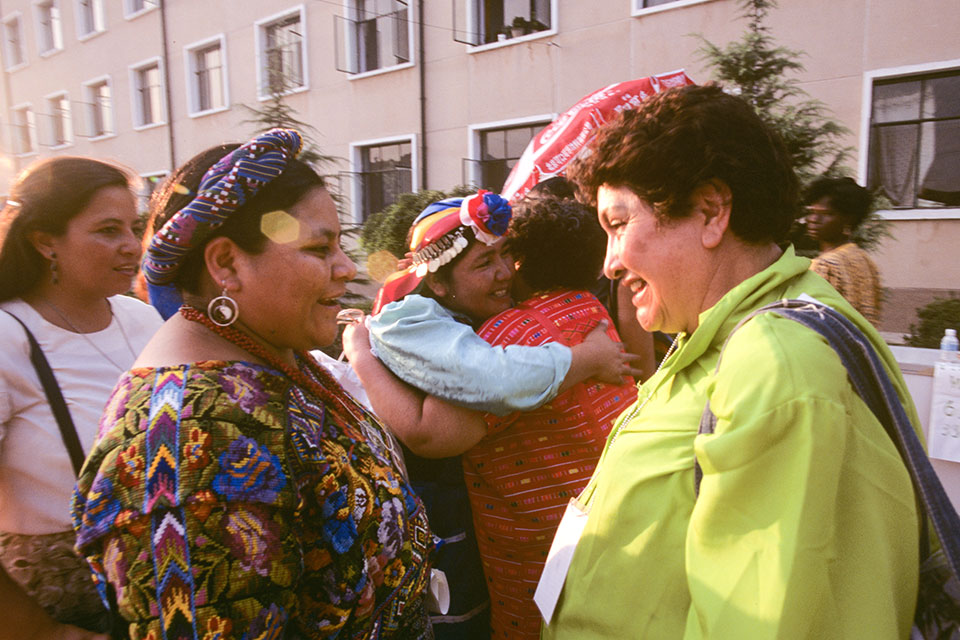
“The most exciting thing in Beijing was the enormous preparation made by women. Prior to the conference, we worked on a powerful agenda, very diverse in its content, in which the demand for gender equality was not only a demand and a declaration, but an action in the benefit of women, toward their inclusion in sustainable development, towards the resolution of all conflicts that women face, and to end violence. It was an unprecedented gathering of women who raised their voices, and a key element was the presence and voice of indigenous peoples and women. The Beijing Conference was the context that supported our proposals as indigenous peoples and women [in the framework of Guatemala’s peace negotiations], and one of the reasons why we [were successful in including] our issues and concerns in the [Guatemala] Peace Accords. After Beijing, women lost the fear of demanding participation. It was a strong win for human rights.”
What’s next? “I feel very proud because in Guatemala, there is an intergenerational dialogue among women; there is a diversity of women’s expressions, and plenty of young women are involved, taking into their hands their future emancipation. I hope this continues and goes on forever: that women leave a footprint for others to continue fighting for their rights.”
Ayesha Khanam, Bangladesh
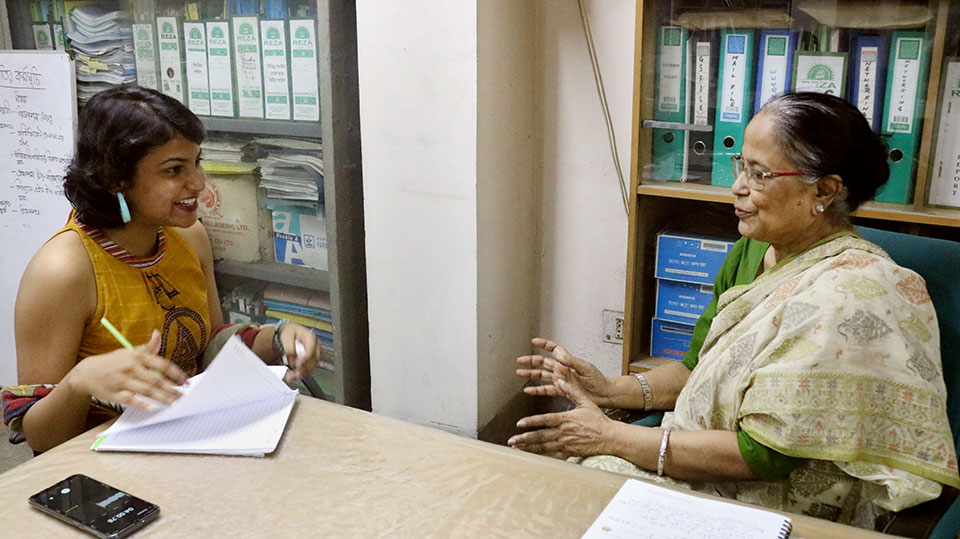
“More than 20 years of groundwork and feminist struggles led to the conference and the Beijing Platform for Action. I remember the sheer excitement, the thirst for knowledge, the buzz that came from the presence of thirty to forty thousand women activists in a room! The most memorable parts for me was the fine-tuning of my own ideas of pluralism, of breaking out of my unconscious biases and taboos as I interacted with other women activists who were different from me.”
What’s next? “Social attitudes towards women have not changed sufficiently. Whether it’s in the bedroom or the boardroom, attitude towards women is derogatory. A culture of violence has emerged, at home, in the workplace, as well as in public spaces. Additionally, there is a tendency of victim blaming. [The] lack of education played a big role here. Mainstream curriculum has ignored human rights and gender issues for decades.”
Jaded Chouwilai, Thailand
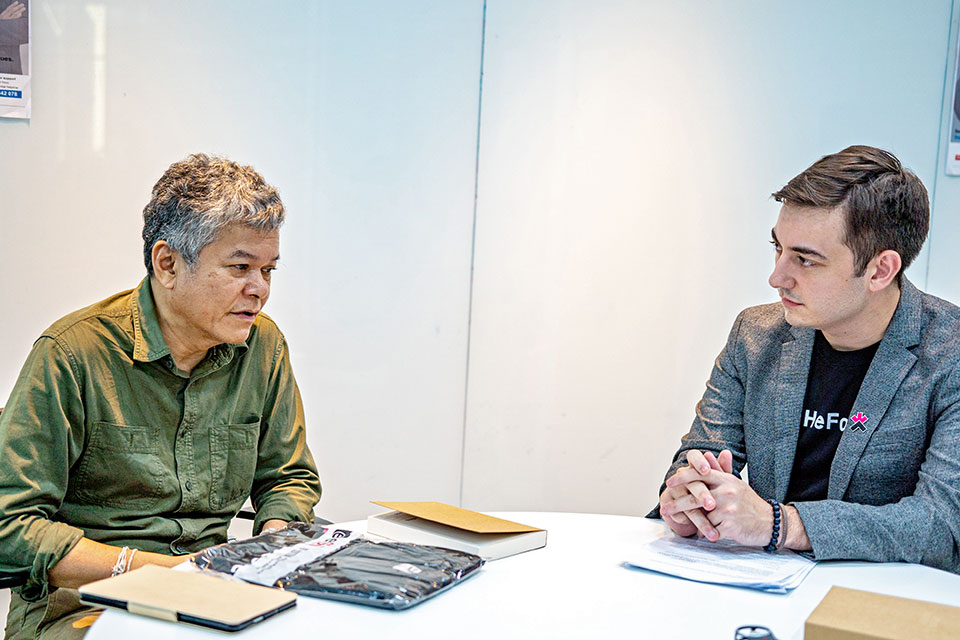
“After the Beijing Declaration, we felt many significant changes in our country. The government provided funding and held campaigns on sexual harassment and violence against women across Thailand. Approximately 20 One-Stop Crisis Centres were established. Women investigators were appointed as contacts for women to file assault complaints. A new law was launched to protect women and children from being harassed.”
What’s next? “In a poll we found that 60 per cent of men still think that household work is a job for women. For men and boys to achieve an equal world, they first need to realize that gender [inequality] is also their problem.”
Tonieh Talery Wiles, Liberia
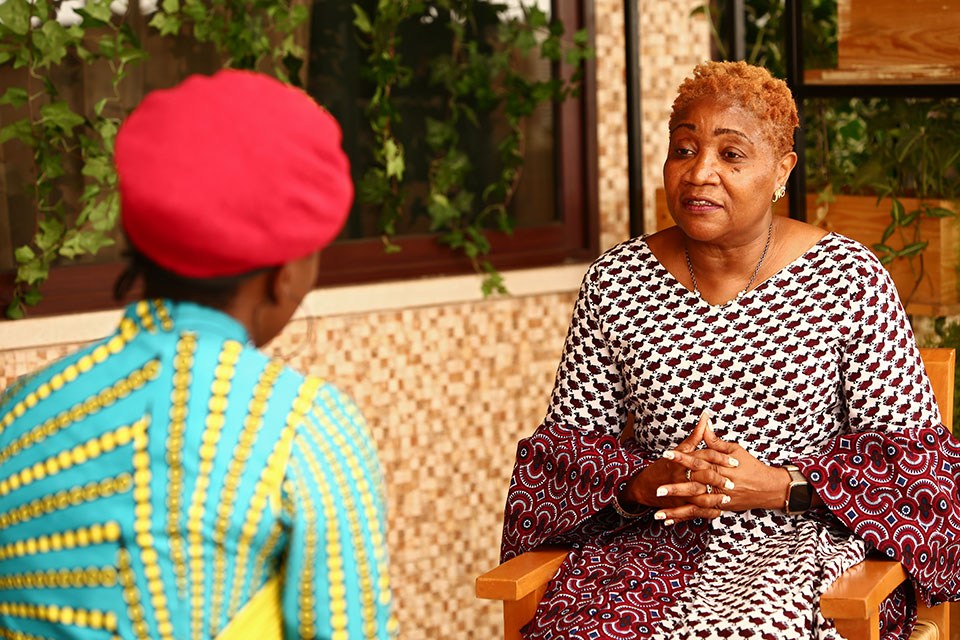
“The Beijing conference made us feel that we needed to do more, put things into perspective and demand more action. The atmosphere at the conference was exciting, [we were] excited to be among other women. The conference provided a lot of networking opportunities, discussions and trainings. During the Conference, I met women like Hillary Clinton and the late Winnie Mandela…they were in leadership positions and we wanted recognition. I was inspired by their work. After the conference, I decided to focus on activism and advocacy on women and children’s rights.”
What’s next? “There is a still a big gap in women political participation. Although we had a female President, we still have few women in parliament and in cabinet. We ratified almost all the conventions but [we still need to] change mindsets. Laws need to be implemented and some of them need to be revisited.”
Asiya Khairullina, Kazakhstan
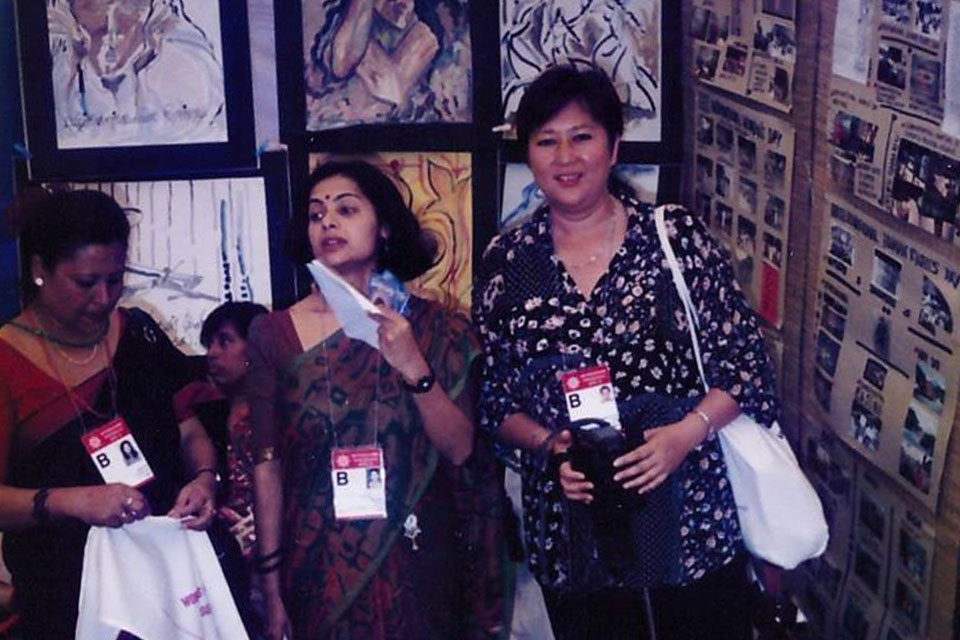
“The 1995 World Women's Forum in Beijing was a stunning global event for me. It was a real centre of ideas, events, meetings, discussions, where every woman could find her own topic, place, like-minded people and new ideas for further work in her own country. After the conference, all countries received the guidelines, clear, coordinated goals, criteria, and strategies. Before, we did not separate the concept of a woman and a girl. But finally, there was an understanding that without protecting and strengthening the potential of girls and young women, we will never get confident, active and successful women.”
What’s next? “I think that the greatest obstacles to the implementation of the Beijing Platform for Action are: falling educational standards, an increase in patriarchal tendencies in societies, disunity in the women's movement, lack of clear goals and understanding of the importance of their achievement, which must be ensured by the State. We need to be united; we cannot forget the achievements accumulated over the years. We must use them as intellectual and political capital, including new goals and perspectives that correspond to the time.”
Layla Naffa, Jordan
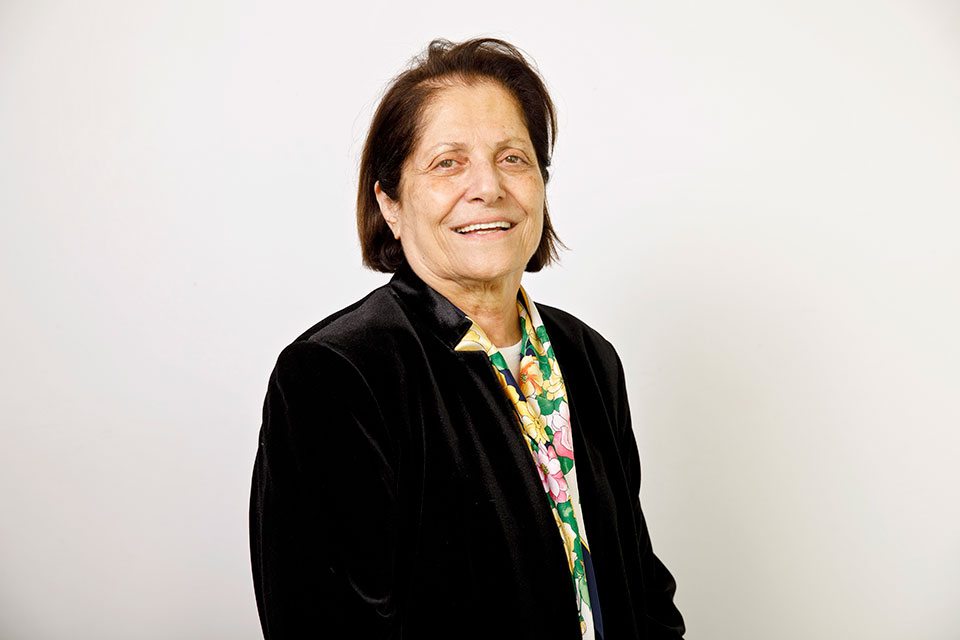
“I was proud to have represented Jordan and I was eager to learn. For me, it wasn’t [about] participating for the sake of participation; I wanted to learn, and I wanted to be exposed to a global experience so that I could make a change when I returned to Jordan. [After] the Beijing Conference, ground-breaking resolutions such as the UN Security Council resolutions on [women, peace and security] were adopted because in the conference, there was a loud outcry for addressing violence against women, including trafficking, sexual harassment and eliminating violence against women at times of war and times of peace.”
What’s next? “Globally, [we are] falling behind on [prioritizing] human rights. Even in our region, everyone is saying, “security first, human rights later”. I believe that the most prominent issue now is helping women in conflict. There are conflicts in almost all Arab countries, which put women in critical situations. So, for us, the first priority is providing services to victims.
Diana Urioste, Bolivia:
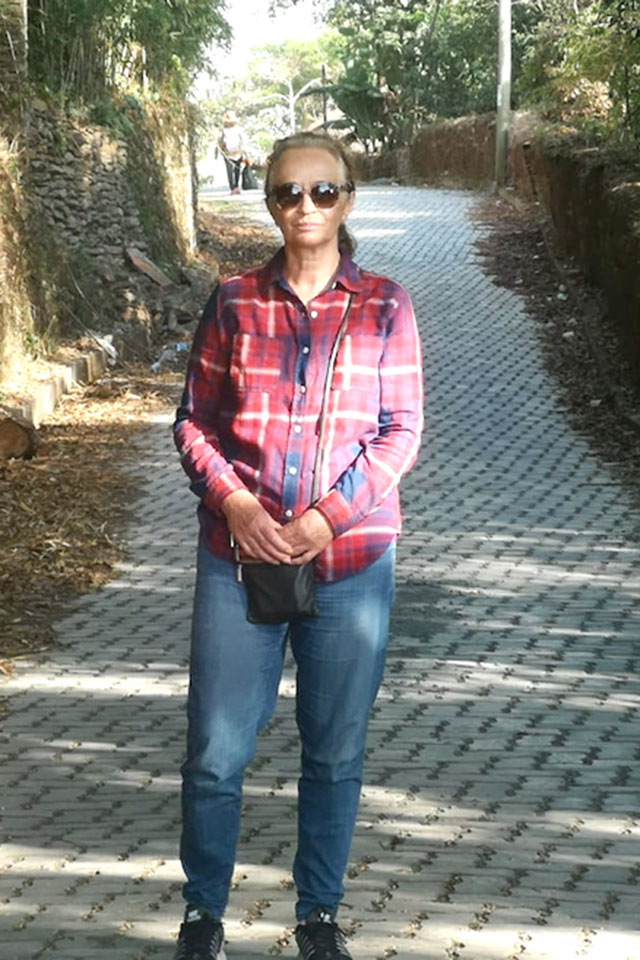
“The preparatory process before the conference was important to collect and articulate the demands, problems and concerns of women of diverse cultures, of different ideological positions from all over Bolivia and also from the entire Andean Region. Achieving consensus and linking up with feminist women in the subregion was fundamental [to the success].
The inauguration was a memorable moment… we saw the diversity and strength of women's movements and feminist movements – women from all corners of the world, with cultural differences, with totally different concepts of politics and [different] interests, but with the same problems of violence and fully aligned with the objectives of the conference. Thanks to the Beijing Conference, the magnitude of violence against women became visible. For example, at the same time as the Fourth World Conference on Women, Bolivia approved the Law 1674 against Domestic Violence, which in 2013 became the Comprehensive Law to Guarantee Women a Life Free of Violence. The law made domestic violence a public issue, and recognized feminicide as a crime.”
What’s next? “It is now necessary to analyze and link violence against women and women’s sexual and reproductive rights as the issue of autonomy of women's bodies. [Also required] is an analysis of the patriarchal system within a colonial and capitalist system, and what that means for women.”
Asmaa Khader, Jordan
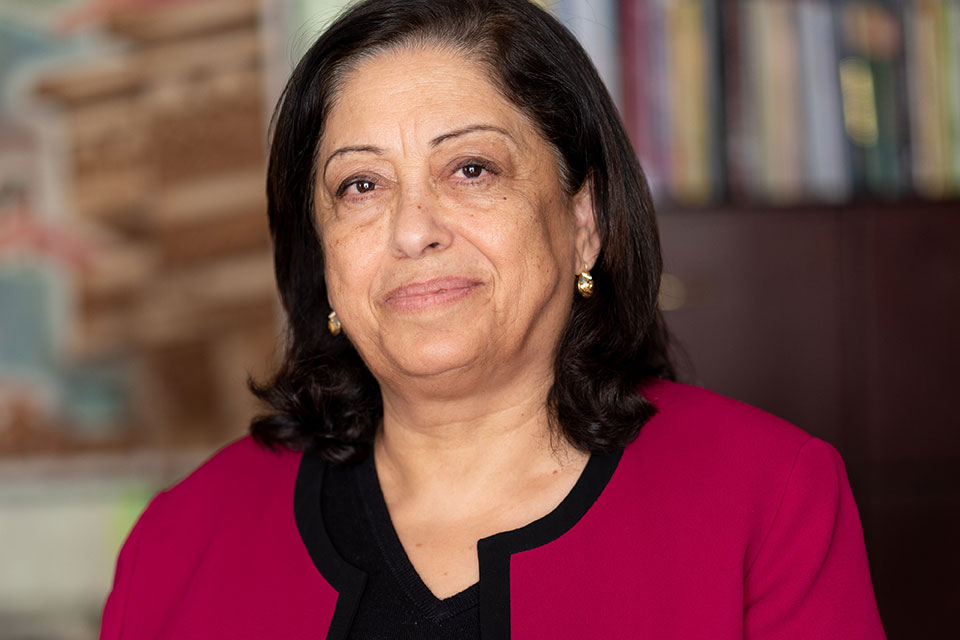
“The Fourth World Conference on Women was an important and historic moment… It not only enabled the women's movement, but it also enabled countries and partners to address [various] forms of discrimination and violence against women, and it [outlined] areas of concern to focus on, to fully realize women’s rights for an equal future. There is no doubt that the Arab countries have made great achievements [since then]. There is significant progress in the education of women and girls and an improvement in the number of women in decision-making positions at the executive, legislative and judicial levels, and a number of laws and constitutions now recognize equality between women and men.”
What’s next? “The gap between the laws and their application remains an issue. There are remnants of laws that still discriminate against women and do not give sufficient attention to the rights of women and girls. Women still face many forms of violence without an effective deterrent and without adequate remedies. Another big challenge we face is the persistence of the exceptional circumstances experienced by several Arab countries, whether because of armed conflict…and we all know that women are the most affected by these circumstances.”
Heisoo Shin, Korea
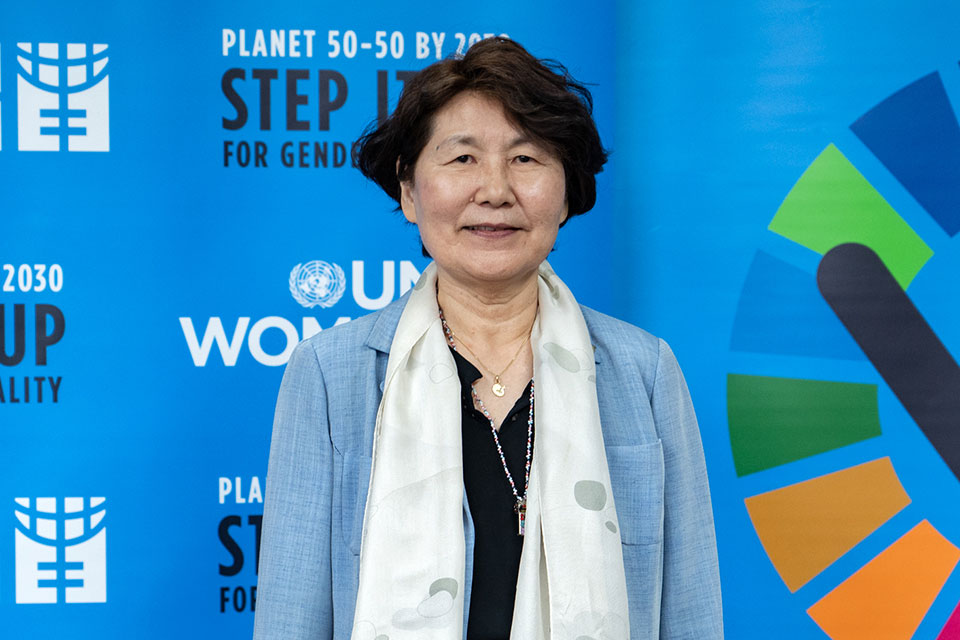
“I can say that we were all very excited to be engaged in the Beijing World Conference on Women… We were especially excited for the Beijing Platform for Action. [Learning about] what governments should do, what international organizations should do—it was the first time that we learned about the [phrase] ‘gender mainstreaming’, for example. I think it was critical to find out what the major issues in critical areas of concern were. Important issues [such as] women in education; violence against women, etc. [had] a big impact on government accountability and [their] obligations in terms of law, policy and implementing the Beijing Platform for Action.”
What’s next? “The world has changed a lot, but [there are now] new difficulties for women. There is the digital divide, for example. Although there has been progress, women are experiencing unemployment. We need to rethink what the new challenges are. For example, we didn’t have that much violence against women happening on cyberspace back then, but now there are new forms of discrimination and violence.”